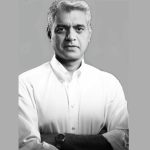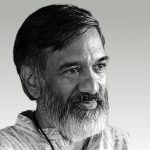Podcast Themes
Multiple perspectives on a topic that you are curious about!

Alan speaks about a ‘Product’ that Bill might have accidentally invented in the way he went about doing his work – The notion of a ‘Team Coach’. He speaks about how Bill would spend time getting to know the individuals and the overall team to be in a position to be of value to the collective.

What is common to radio, sonar and the internet? All these technological innovations, like many others, have their origin in war or conflict. Most have been researched and developed at military labs and then scaled up. Start-ups therefore, can benefit immensely from this experience. Hear Raghu talk about the need for a common vocabulary in order to achieve this. Hint: there is also a valuable tip about the “How” question.

Michiel speaks about how in a team, we can have a chain reaction where people end up triggering each other and that could really be counter-productive. He speaks about how teams can collectively access “mini – balcony moments” to deal with these situations.

Raghu speaks about the Nakula archetype that often creates the emotional infrastructure in an organization. He speaks about how such leaders might have to flex and demonstrate some of their other elements to build trust when they move to a new context. He also speaks about the link between having this emotional infrastructure and agility that a company might need to respond to sharp changes in the reality of the world.

Harsh speaks about how he thinks about assembling a good quality Board and extracting value from them.

In one of the stories, Harish takes us back to 1930 when the competition was to see who could complete the fastest solo flight between India and England that year. JRD Tata (flying from India to England) and Aspy Engineer (flying from England to India) are two of the competitors and it turns out to be a close race to the finish line with these two. The story is about something that transpires between them when they meet in Egypt, something that illustrates the approach to competition in the Tata Group.

Vinay speaks about how the RSS and BJP use the interpretation of history to create a certain purpose for the institution which is beyond the individual. He also speaks about some of the institutional norms that ensure that the organization stays cohesive and there isn’t unnecessary “chatter”. He also uses the term “sulking on mute” to denote how leaders would disagree yet commit to a chosen path putting the institutional interests ahead of theirs.

Vinay speaks about some of the nuances involved in the way Advani and Vajpayee handled their personal and professional relationship. He speaks about how they often put the Hindu Nationalist agenda (as cultivated given their formative years in the RSS) might have acted as a glue that might have held them together over the long term despite their differences.

Vinay speaks about how RSS has been able to create a tight bond amongst its members. He attributes it to the requirement of the RSS pracharaks to be Brahmacharyas (stay single) while their emphasis on family-like values in the organization. He speaks about how this has helped them attract talented people into the organization and avoid the pitfalls of dynastic politics.

Vinay puts the Vajpayee – Advani relationship in perspective. He speaks about how they had two occasions where the power equation flipped completely. He shares other examples to illustrate how special this dynamic is when you compare it to most other relationships at the top across disciplines.

Sudhir speaks about the four pillars of culture at HUL – Action, Values, Courage and Truth. He also speaks about how that these elements of culture are percolated through the organization. He traces these elements to the various strains of genetic code of the Anglo Dutch parent. He speaks about how when he spoke to some of the senior alumni of HUL, they shared stories of their experiences which eventually clustered around these 4 pillars.

Paddy speaks about how he and Gary Kirsten spent the first few months building trust with the players of the Indian cricket team when they were appointed. Given that they were coming from a different culture and with limited prior experience in a similar high-stakes context, it was critical for them to land well.